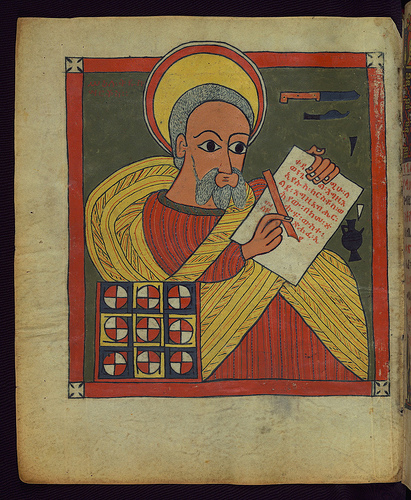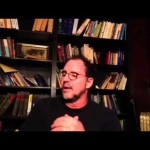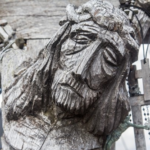We run our website the way we wished the whole internet worked: we provide high quality original content with no ads. We are funded solely by your direct support. Please consider supporting this project.

Are the Gospels Historical Fiction?
Some scholars today argue that the stories recorded in the Gospels are actually intentional fabrication. In essence, they argue that Mark took Paul’s theology and robed the story of Jesus in a fictitious historical narrative. The other Gospels followed suit. The argument is clever and removes the difficulty of explaining how a legend of a God-man could arise so quickly among first-century Jews.
But there are 7 major problems with this contention:
- The Gospels don’t read like a fictional genre of literature. To the contrary, they give us many indications that they genuinely intended to report reliable history. In addition, they pass all the standard tests scholars usually apply to ancient documents to ascertain a general historical reliability.
- We must ask why the authors of the Gospels would want to create a new, fictionalized Jesus story. What was their motivation? By the time that these authors were writing the Gospels, Christians were being tortured and put to death for their faith. So what could these authors have thought they or their readers would gain by fabricating and embracing this fictional story?
- We have to wonder why any early Christian would have accepted them as true.
- How did the authors of the Gospels think they could get away with creating a fiction situated in the recent past and in such close geographical proximity to their audiences? We must remember that Jewish religious authorities had a vested interest in putting an end to this movement, which they considered to be a dangerous sect. If the story these authors were telling was false, it seems it would have been relatively easy to expose it as such.
- To accept the version of the early church history offered by these scholars, we must also accept that the version of the church history given in the book of Acts is largely false. For many reasons that cannot be addressed here, the book of Acts is a remarkably reliable piece of ancient historiography.
- An understanding of the Gospels as fictitious completely ignores the role that writing plays in orally-dominant cultures. Writing was not the primary means of communication among people in the first century. Rather, information was passed along primarily by word of mouth. Writing plays a very different role in these cultures than in “literary cultures.” In literary cultures, novelty and innovation in literature is valued. In orally-dominant cultures, it is generally frowned upon. The primary purpose of writing, rather, is faithfully to re-express an established oral tradition.
- Research has demonstrated that in orally-dominant contexts people tend to be quite resistant to change in terms of the essential components. Oral performers—those who regularly recite oral traditions for their communities—are allowed a certain amount of flexibility in how they recite traditional material. But if the oral performer alters anything of substance in the tradition, members of the community customarily interrupt and correct him or her. Hence, the suggestion that a fictional writing from an anonymous author could have overturned established oral traditions about Jesus in the early church must be judged as massively improbable. This is simply not how orally-dominant cultures tend to operate.
—Adapted from Lord or Legend? pages 42-45
Image by Walters Art Museum Illuminated Manuscripts via Flickr
Category: Q&A
Tags: Bible, Biblical Criticism, Gospels, Jesus, Lord or Legend?
Topics: Biblical Reliability, Jesus: Lord or Legend
Related Reading

Uncrossed
Did any of you catch SNL this weekend? They did a parody of Tarantino’s DJango Unchained called DJesus Uncrossed. Many were deeply offended by the depiction of Jesus in this, but David R. Henson blogged about how this skit revealed what we’ve already been doing for quite a while as a culture. In his blog…

What is the Kingdom of God (Part 1)
We all know what the Kingdom of God is, right? But this is precisely the problem. Since we are all to a large extent products of our culture, what seems obviously true and right to us will be at least influenced, if not determined, by what seems obviously true and right to our culture. This,…

Typhoon Haiyan and “Natural” Evil
Greg recorded his thoughts a few days ago on Typhoon Haiyan and the reality of “natural” evil that’s not really natural at all. “This an enemy has done.” (Matthew 13:28)

Classical Theism’s Unnecessary Paradoxes
The traditional view of God that is embraced by most—what is called “classical theology”—works from the assumption that God’s essential divine nature is atemporal, immutable, and impassible. The Church Fathers fought to articulate and defend the absolute distinction between the Creator and creation and they did this—in a variety of ways—by defining God’s eternal nature…

The God Who Embraces Our Doubt
Lawrence OP via Compfight Zack Hunt over at The American Jesus posted some of his thoughts on doubt, and it seemed fitting on this week before the Doubt, Faith & the Idol of Certainty conference to share what he had to say. We’re thinking he must have stumbled on Greg’s book or maybe God is…

Do the Gospels Fabricate Prophetic Fulfillment?
Skeptically-inclined scholars, and especially critics of Christianity, frequently argue that the Gospel authors created mythological portraits of Jesus largely on the basis of OT material they claim Jesus “fulfilled.” In other words, they surveyed the OT and fabricated stories about how Jesus fulfilled those prophecies. In response, it’s hard to deny that there are certain…
